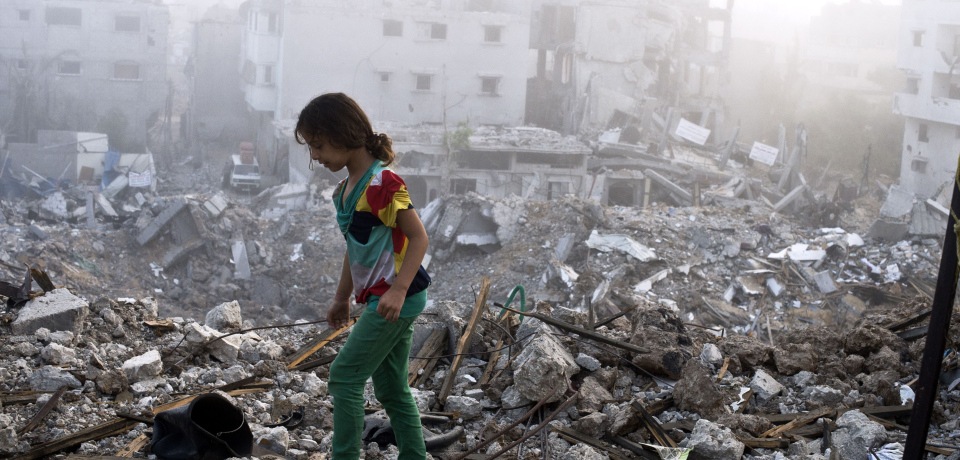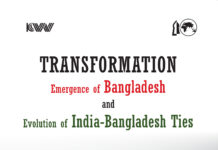As the humanitarian crisis deepens for Palestinians in the West Bank and Gaza, we at Doctors Without Borders are trying to heal their wounds without enabling the occupation.

tepping out of a car in the West Bank town of Kafr Qaddum, I was greeted by the stench of urine, feces, and burned tires — a foul reminder of the near-constant confrontation between Israeli settlers and soldiers on one side, and Palestinians on the other.
The Abu Ehab family — whose two-story house is on a slope just below the road we drove in on — is caught between these battles. The family members keep their chickens on the second floor and live on the first, but the walls do little to protect them from the exchange of tear gas, burning tires, and hurled rocks. Israel Defense Forces (IDF) troops frequently move around the Abu Ehab family’s property during nighttime search operations; at times, they enter the house.
The smell comes from “skunk,” the sewage-smelling liquid that the IDF uses to soak Palestinians and foreign protesters who gather weekly on this ashen road. It is so pungent that the family’s eldest son now vomits at the sight of food. The military also uses flashbang grenades to counter the demonstrations. After one detonated too close to the family’s home, the eldest daughter lost hearing in one ear.
“She used to not be able to finish a sentence without crying,” the psychologist with Médecins Sans Frontières (MSF, or Doctors Without Borders in English) who has been counseling the girl’s mother tells me. “Now, she can talk about her fears without breaking down.”
This is how MSF, as a medical humanitarian organization, measures the progress of those we assist in the occupied Palestinian territories. For the past 15 years, our programs in the West Bank and Gaza have focused mainly on mental health, but my colleagues at times feel like they can only give patients a thicker coat of psychological armor against the daily trauma of their lives. These patients are parents of teenagers being held in Israeli or Palestinian prisons, children with one or both parents in detention, families on the front lines of settler-Palestinian violence or intra-Palestinian violence, and those affected by nighttime IDF search operations or other military actions.
What our staff sees, day in and day out, are the medical consequences of the occupation. But while we can treat some of our patients’ symptoms, we can’t alter the underlying causes of their suffering. And as the suffering has become normalized, we have been questioning the wisdom of our presence. This is the humanitarian’s dilemma: how to alleviate the suffering of a population while not enabling the powers at the root of the pain.
With the one-year anniversary of the latest (but likely not the last) war in Gaza, it should be understood that humanitarian organizations do not hold a monopoly on this dilemma. All countries — the United States and European Union members in particular — that condone and help extend the occupation of the Palestinian territories, whether by subsidizing it through humanitarian or military aid or by giving political cover to its policies and practices, must confront their responsibility for the suffering of Palestinians.
MSF has been working for more than 15 years in the occupied Palestinian territories. Our medical and psychological programs give a window into the daily reality for Palestinians living in the West Bank and Gaza. It is a journey that reveals the devastation of the policies of occupation, whether through blockades and bombardments or through walls and nighttime raids.
Night terrors and bureaucratic violence
Another form of psychological violence experienced by our patients is the constant threat of loved ones being locked away indefinitely, without charge. The IDF frequently moves around the Abu Ehab family’s property during nighttime search operations; at times, troops enter the house. Not far away, in the town of Majdal Bani Fadil, six children are living by themselves: Both parents were arrested in the past year, an uncle explained when I visited their home with one of our psychological assessment teams in late April. Their mother was taken away in the middle of the night 12 months ago, he told me, and says that she has been held without sentencing ever since.
The children not only saw her dragged away, but they also have no idea when she will return. Now the eldest daughter cannot focus on her studies, the middle son is prone to violent outbursts, and the middle daughter is often found crying in her parents’ old room. “They don’t have hope,” the uncle said.
MSF sees how this sort of administrative detention — through which people can be held indefinitely without charges — heightens the psychological violence inflicted on Palestinian children. As the number of Palestinians held by Israel for alleged security offenses rose by 24 percent in 2014, more and more families were separated. The number of orders for administrative detention issued by Israeli military courts in the West Bank has skyrocketed to 319 since the beginning of 2015, from 51 in 2014, according to the Palestinian Prisoners Center for Studies.
The presence of the Israeli army and its use of force are the main cause of the psychological trauma of our patients in the West Bank. A review of the main triggers resulting in our patients’ need for psychological treatment showed that just over half (52 percent) of them describe violent IDF search operations inside their homes, 42 percent say one or more family members is currently incarcerated, and 35 percent report being affected by indirect violence such as shootings or incursion operations by the IDF.
Unsurprisingly, children suffer the worst effects. Half of the 254 patients who received care in 2014 were younger than 15, and 25 percent were younger than 10. Fifty percent of the children we see say they have trouble sleeping, 34 percent report anxiety, 28 percent have trouble concentrating, and 21 percent report bed-wetting. Even our most seasoned psychologists are shocked by the levels of trauma.
Source: Foreign Policy









